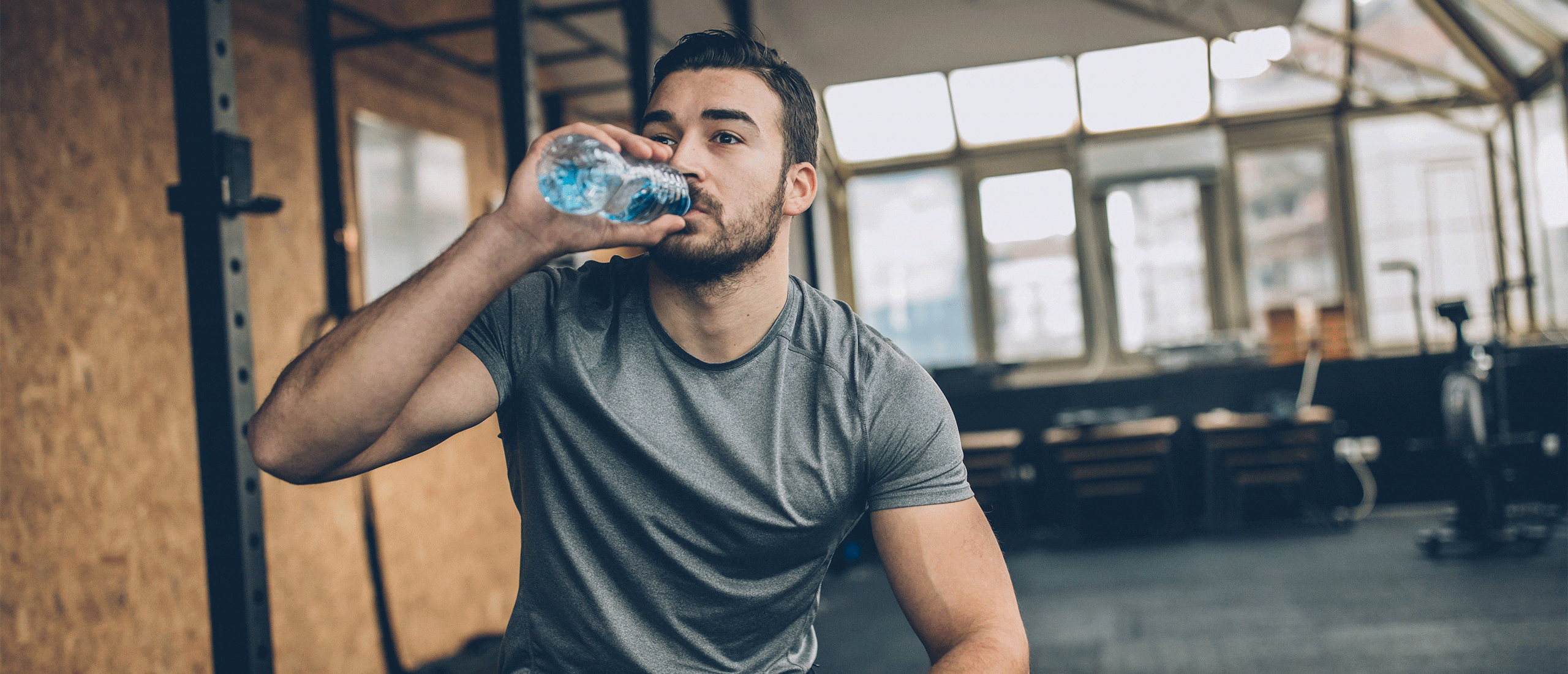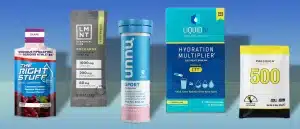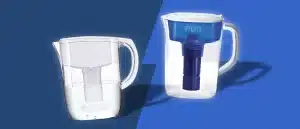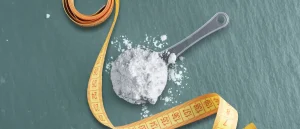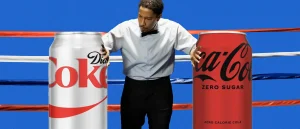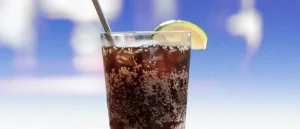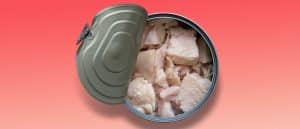5 Hydration Myths Men Still Fall For
- By Austin Letorney
- Fact-checked by Tracy Middleton
- April 25, 2023
Your mouth is so dry your tongue feels like sandpaper. You have a piercing headache that just won’t leave. You’re grumpy, and people notice. You’re not hungover (maybe you are, no judgement) – you’re dehydrated.
And it may not even be your fault. Thanks to social media, outdated science, and old wives’s tales, there’s an almost endless number of myths that can get in the way of you being well-hydrated.
Why that’s a problem: everyone is different and hydration is not one-size fits-all.
Smart hydration starts with avoiding these 5 hydration myths and replacing them with better intel.
Myth #1: You Need to Down 8 Glasses of Water Per Day
From the very beginning of your hydration education, you’ve been told that drinking 6-8 glasses of water per day is ideal for energy, productivity, and muscle fuel. But this logic dates back to the mid-1940’s and is based on the idea that everyone needs the same number of calories—and amount of H20—per day.
We know now that health, fitness, and nutrition aren’t one-size-fits. Many factors come into play when it comes to your individual hydration needs, including your age, gender, activity level, where you live, what medications you may take, and what you eat (1).
A better recommendation: “Drink half your bodyweight in ounces per day,” says Susan Greene, ACE certified Health Coach, Nutrition Specialist, and Personal Trainer. “If you weigh 200 pounds, you would need around 100 ounces of water per day, or about 12-13 cups.” If you only weigh in at a buck sixty, your water needs drop to about 10 cups.
If that feels like a lot, don’t stress—Greene says that drinking three quarters of your daily goal is probably fine, since some of your daily fluid intake can come from food (more on that below).
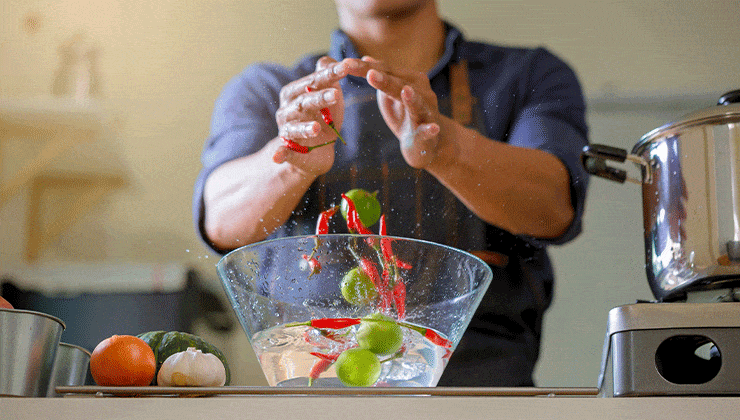
Myth #2: You’re Already Dehydrated if You’re Thirsty
Feeling parched can be a sign of dehydration, but eating spicy or salty foods can also make your mouth beg for water. Certain medications (like antidepressants and antihistamines) can also dry you out because they reduce the amount of saliva your glands produce.
Bottom line: if you’re thirsty, step back and consider the circumstances. You may just need a quick sip to quench your thirst.
Myth #3: More Water is Always Better
Hydration isn’t just about water. It’s also about sodium, an electrolyte that regulates your body’s fluid balance.
Drinking too much water can cause the sodium levels in your blood to get too low by overtaking your kidneys’ ability to get rid of excess water. Since all that fluid has to go somewhere, your body pumps it into your cells which begin to swell. This swelling can lead to a condition called hyponatremia, with symptoms that range from mild (nausea, muscle cramps, headaches) to life-threatening (2).
Maintaining proper sodium levels is especially important if you’re active, says Greene. “When you sweat, you lose sodium at a much greater rate than other electrolytes.” That’s why long distance runners often need to pop salt tabs during a long run.
While hyponatremia can be deadly, you’d have to drink 2-4 liters an hour without sweating to start to see symptoms. If you start to develop any of these red flags during an intense workout, seek medical advice and for more severe symptoms, emergency help.
Myth #4: Caffeine Dehydrates You
Coffee has long been seen as the enemy to hydration because it is a diuretic, something that helps rid your body of water. While caffeine and caffeine-containing drinks do make you pee, they aren’t a cause for dehydration, notes the Mayo Clinic (3). In fact, enjoying an extra cup of coffee in the morning could even help you live longer.
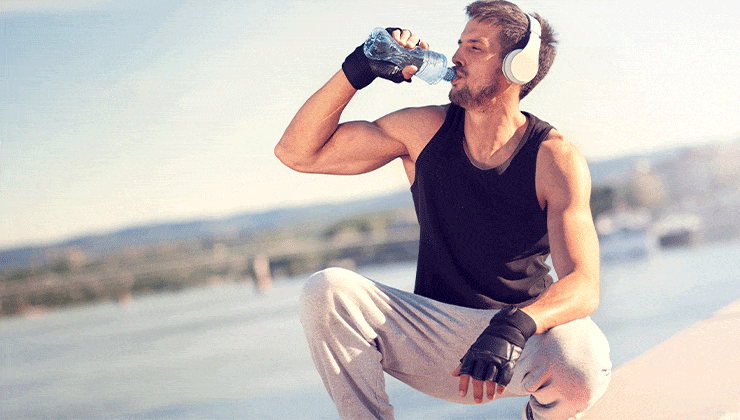
Myth #5: Sports Drinks Are the Best Way to Rehydrate After Exercise
When Gatorade made Michael Jordan a spokesperson, everyone wanted to “Be Like Mike,” sweating out sports drinks to prove their athletic dominance.
“The reason sports drinks, such as Gatorade, are so great for athletes is because they infuse the body with those much needed minerals that you need to keep up with the physical demand that is being put on it,” Greene states. “However, for those with a less active lifestyle, the sugar content in a sports drink, like Gatorade, isn’t recommended for daily consumption.”
In other words, you don’t need to channel your inner Jordan unless you’re running a marathon, or really breaking a sweat during a weekend warrior challenge. For regular exercise, water is your best option (4).
Fact #1: Drinking Water Can Help You Lose Weight
If you’re trying to shed a few pounds, drink a full glass of water before every meal, suggests Greene. “It can suppress your appetite and help you control portion sizes and not overeat.”
Drinking water before you eat can also stimulate your metabolism for more energy expenditure and increased thermogenesis (the production of heat that works to burn calories and produce energy in the body), especially if you toss in some ice cubes. Your body expends energy to bring cold water up to your body’s temperature, which can give your metabolism a lift (5).
Fact #2: Urine Color is a Good Indicator of Dehydration
Pay as much attention to what’s coming out of your body as what’s going in. If your urine is a pale straw-yellow color, it’s a good sign that you are hydrated. If your pee gets darker, start drinking more.

Fact #3: Food Can Help You Fight Dehydration
Water-dense foods count toward your daily H20 needs. In fact, most guys get about 20 percent of their water from food (6).
Watermelon and spinach are nearly 100 percent water by weight, per the Mayo Clinic. Other water-rich eats include strawberries, cucumbers, apples, grapefruit, and blueberries.
Fact #4: Dehydration Can Lead to Brain Fog
Your brain is about 75 percent water (7). So it makes sense that not getting enough water to keep it happily swimming in your head can negatively impact cognitive performance.
“Your brain cells cannot function properly if your water levels are too low,” says Greene. “Along with headaches and low energy levels comes potential short term memory issues, mood disturbances, and difficulties with visual perception.”
Fact #5: Water Can Keep you Regular
During digestion, water helps break down food so it can be absorbed and its nutrients shuttled throughout your body. Without enough water, your stool can harden, and become hard to pass. Adding insult to injury: If you strain too hard you can develop hemorrhoids. Just be aware that drinking too much water can have the opposite effect. If your kidneys can’t get rid of extra fluid, water builds up in other areas, including your colon, which can lead to diarrhea.
References
Armstrong, L.; et al. (2018). Water Intake, Water Balance, and the Elusive Daily Water Requirement.
Mayo Clinic. Hyponatremia.
Zeratsky, K. and Mayo Clinic (2020). Nutrition and healthy eating.
Cordrey, K.; et al. (2018). Adolescent Consumption of Sports Drinks.
Johns Hopkins University (2020). Yes, drinking more water may help you lose weight.
Gordon, B.; et al. (2019). How Much Water Do You Need.
Zhang, J.;l et al. (2021). Effects of Water Restriction and Supplementation on Cognitive Performances and mood among Young Adults in Boadin, China: A Randomized Controlled Trial (RCT).



